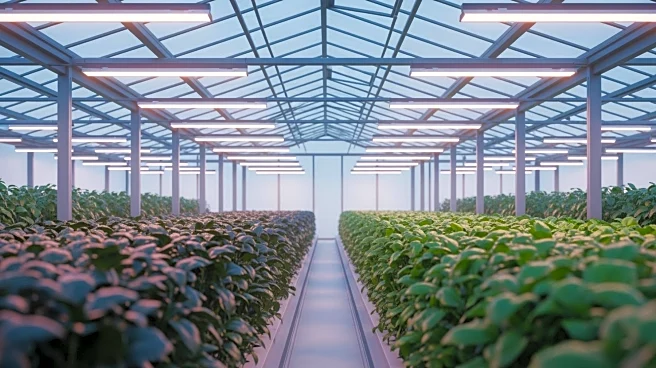What's Happening?
Modern agriculture is undergoing a transformation driven by technological innovation and sustainability. Tools such as soil sensors, smart irrigation systems, and eco-friendly farming practices are increasing
efficiency and reducing environmental impact. Biotechnology is developing resilient seeds adapted to different climates, promoting sustainable productivity. This approach creates economic opportunities for farmers and agribusinesses while ensuring high-quality food and a healthier environment. The integration of technology and responsible practices is reshaping business models, generating high-value products, and opening new markets.
Why It's Important?
The transformation of agriculture through technology and sustainability is crucial for addressing the challenges of climate change, resource management, and food security. By adopting innovative practices, farmers can increase yields and reduce reliance on harmful methods, contributing to environmental conservation. The shift towards sustainable agriculture also enhances competitiveness, access to eco-certifications, and consumer recognition. The integration of small and medium-sized producers into larger value chains strengthens local economies and promotes fair development.
What's Next?
The continued advancement of agricultural technology will require investment in research and development, as well as education and training for farmers. Collaboration between companies, researchers, and producers will be essential for sharing knowledge and strengthening the sector's resilience. Future steps may involve expanding the use of biotechnology and digital tools to optimize resource use and improve productivity. The focus on sustainability will likely lead to increased demand for eco-friendly products and practices.
Beyond the Headlines
The transformation of agriculture raises ethical considerations about the balance between technological progress and environmental care. The emphasis on sustainability reflects a broader trend towards responsible consumption and production. The integration of innovation and sustainability in agriculture may influence global food systems and policies, promoting long-term resilience and resource conservation.












